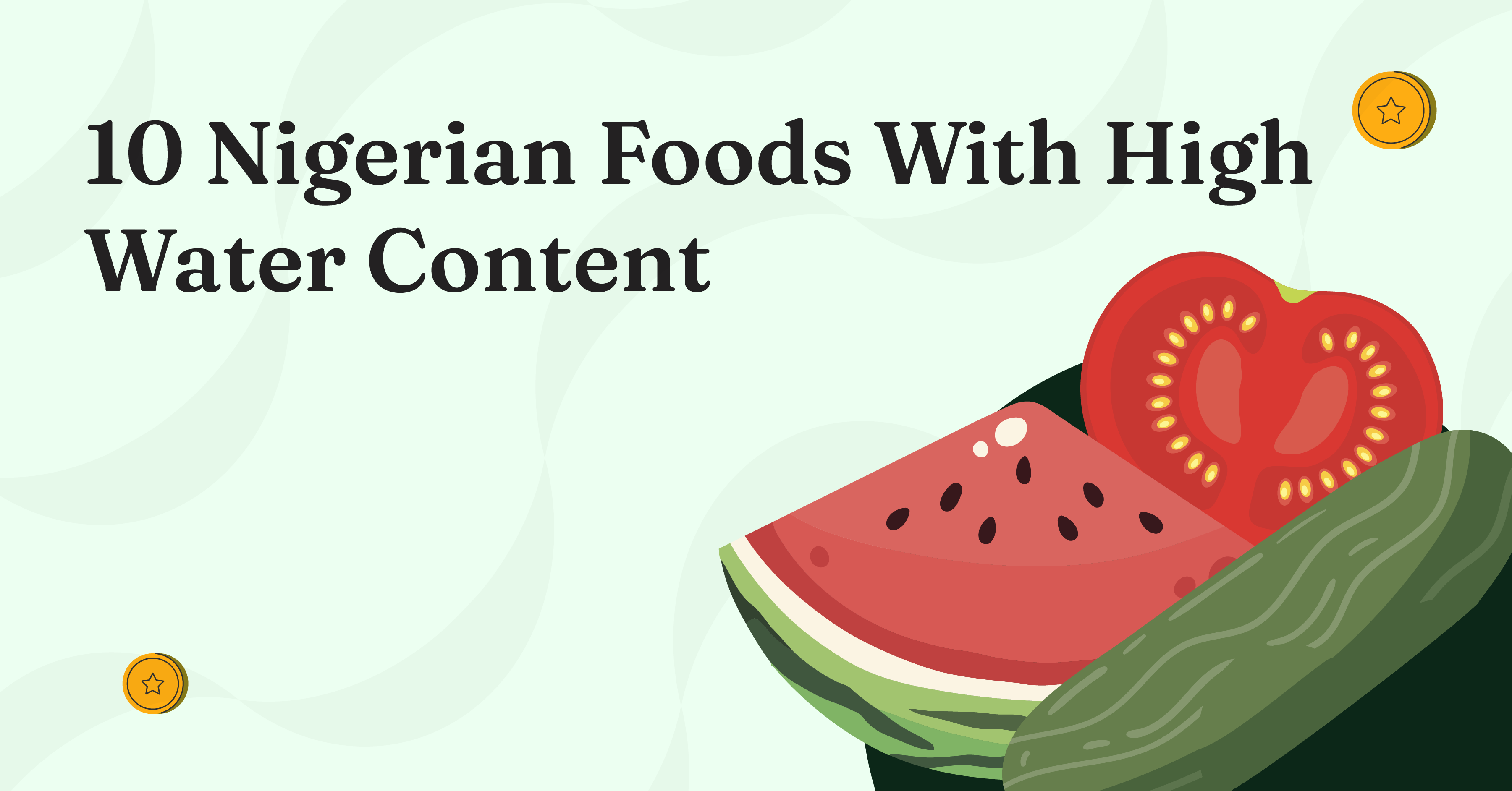We all know how important it is to eat right, especially living in a country like Nigeria, where the economy is constantly shifting and everyday expenses are rising. With the cost of living increasing, many of us are finding it harder to stick to healthy eating habits. In addition to the challenges of fuel scarcity, power outages, and the unpredictable national grid, it can feel like staying energized and nourished is a never-ending struggle.
But despite these challenges, it’s still possible to take control of our health and well-being. One of the most effective ways to do this is by focusing on high-protein meals. Protein-rich foods play a crucial role in keeping us energized, boosting our immune systems, and helping our bodies recover from stress. And the good news is, Nigeria offers a variety of affordable, protein-packed foods that can easily be incorporated into our daily diets.
In this article, we’ll explore 7 Nigerian foods high in protein that can help you stay energized and healthy as we head into 2025.
Why should you add protein to your diet?
You may already know that protein is important, but why exactly should you focus on it more in your diet?
1. Protein helps build and repair muscle tissue
Protein is essential for muscle growth and repair. If you’re someone who works out or does physical labour, adding enough protein to your diet will help your muscles recover faster.
2. Protein boosts your metabolism and energy levels
If you want to feel energized throughout the day, protein is key. Unlike carbs, which can cause energy crashes, protein gives you sustained energy. When you add protein to your meals, it helps to stabilize your blood sugar levels, which keeps your energy steady.
3. Protein supports immune function
Protein is important for maintaining a healthy immune system. Your body uses protein to make antibodies and other molecules that protect you from illness. Adding high-protein foods to your diet can strengthen your immune defenses and keep you healthy throughout the year.
4. Protein promotes healthy skin, hair, and nails
Protein plays a critical role in the health of your skin, hair, and nails. Collagen, the protein that helps maintain skin elasticity and hair growth, is made from amino acids in protein-rich foods. Consuming protein foods will ensure your body has the nutrients it needs to look and feel your best.
5. Protein helps with weight management
Adding protein to your meals can help you stay full longer and reduce cravings. This is particularly helpful if you’re looking to maintain a healthy weight or shed a few pounds. Foods like beans and millet are not only high in protein but also fibre, which can aid in digestion and help keep you feeling full for longer periods.
With these solid reasons in mind, let’s look at 7 Nigerian foods high in protein that you can start adding to your meals today.
7 Nigerian foods high in protein
1. Beans
Beans is one of the most popular and affordable protein-rich foods in Nigeria. Whether you prefer ewa (beans), moin-moin, or akara, beans offer a significant amount of protein and are versatile in any meal. A serving of beans can provide you with about 8-10 grams of protein, making them a go-to for vegetarians and anyone looking to boost their protein intake.
Beans are also rich in fibre, which supports digestion, and they are a great source of iron, helping to prevent anemia. The high protein content in beans makes them an excellent option for maintaining energy levels throughout the day.
2. Peppersoup
Nigerian peppersoup is a delicious and spicy broth typically made with goat meat, fish, or chicken, offering a generous serving of protein in each bowl. The combination of meat or fish and spices provides a hearty and satisfying meal that boosts your energy and keeps you full.
Peppersoup is particularly great for replenishing protein after a workout, as it helps repair muscles and supports your immune system with its protein-rich ingredients. The aromatic spices in peppersoup also offer health benefits like anti-inflammatory properties and digestive support.
3. Ose Oji (Peanut butter)
Peanut butter, known as Ose Oji in some Nigerian communities, is a great protein source. It’s rich in healthy fats, providing long-lasting energy and keeping you full. Whether you spread it on bread, add it to smoothies, or use it in savoury dishes, Ose Oji can be a tasty and convenient way to get more protein in your diet.
Peanut butter also contains antioxidants, vitamins, and minerals, all of which help support heart health, making it a healthy addition to your daily meals.
4. Egusi (Melon Seeds)
Egusi is a rich source of protein, containing about 30 grams of protein per 100 grams of seeds. It’s also packed with healthy fats, which help support energy production and brain function.
Beyond protein, egusi is also high in vitamins and minerals like magnesium, iron, and zinc, vital for a healthy immune system. Including egusi in your meals will provide you with energy and improve your overall health.
5. Ogbono (Wild Mango Seeds)
Ogbono, also known as wild mango seeds, is another traditional Nigerian food that is rich in protein. Commonly used to prepare ogbono soup, this ingredient contains a good amount of protein and healthy fats, making it a satisfying addition to your meals.
Ogbono is also known for its thickening properties, which make it perfect for soups. When combined with meat or fish, it provides a hearty, protein-packed meal that will keep you energised and feeling full for hours.
6. Okpa (African Locust Bean)
Okpa is made from the ground seeds of the African locust bean and is a rich source of protein. It’s packed with about 25 grams of protein per 100 grams of seeds, making it one of the most protein-dense foods available.
Okpa is also high in fibre, which helps with digestion, and it’s a great alternative for vegetarians looking to increase their protein intake without resorting to animal-based sources.
7. Millet
Millet is a popular cereal grain in many Nigerian households. It’s an excellent plant-based protein source, offering around 11 grams of protein per 100 grams. Millet is also rich in fibre, which helps regulate digestion, and it’s a gluten-free grain, making it suitable for those with gluten sensitivities.
Millet can be used in various dishes, including porridge, and can be paired with other protein-rich foods like beans or vegetables to create a well-balanced, nutritious meal.
Adding more protein to your diet doesn’t have to be complicated or expensive. As a Nigerian, you have access to a wide variety of delicious and nutritious protein foods that can keep you energized and healthy.
Start today. Whether you’re looking to build muscle, improve your energy levels, or just stay healthy, these high-protein Nigerian foods are a great place to start.
If you need a high-protein diet plan tailored to your needs, text us on WhatsApp today.





